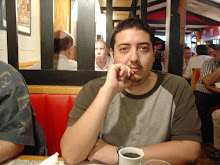

My Fair Lady (1964)
Starring: Audrey Hepburn, Rex Harrison
Directed by: George Cukor
Released by: Warner Bros.
Synopsis: Eliza Dolittle (Audrey Hepburn) is a poor, Cockney flower girl whose unique charms grab the attention of Professor Higgins (Rex Harrison), a master of phonetics who is challenged to use his smarts to turn the dirty flower girl into a woman of grace and beauty. Could a meaningful romance come out of this odd pair?
Review: Before I review the movie, I want to talk about one of the elements that made it very popular: the casting. You see, the role of Eliza Dolittle was originally played by Julie Andrews (Mary Poppins, Sound of Music) in the theater musical version of the story. When it came time to do the film version executives preferred Audrey Hepburn over Andrews simply because she wasn't that well known and Hepburn was a far bigger name than her. This sparked some controversy, with many stories saying that Hepburn was too afraid to decline the role and that many felt Andrews deserved the role. It didn't help that in 1965, Julie Andrews won an Academy Award for Best Actress for her role as Mary Poppins. Fans to this day still debate over who should have played Eliza.
But at the end of the day, what matters is the quality of the film, and lucky for us the film delivers it in spades.
Since I began this review talking about the controversial casting decision, let's analyze Audrey Hepburn as Eliza Dolittle for a second. In my honest opinion, while she doesn't have the vocal presence Julie Andrews had she is impeccable in the role. At times she is nearly unrecognizable thanks to a near perfect deliverance of uncultured Cockney and over the top mannerisms. It can at times be jarring since by this point we have seen Audrey Hepburn playing lovely, sophisticated women, with Breakfast at Tiffany's being one of her most broader roles prior to My Fair Lady. But eventually, she becomes the fascinating woman we all have come to love. Audrey Hepburn had some very big shoes to fill and pulls off the feat rather wonderfully.
Rex Harrison as Professor Higgins is fantastic, but that's to be expected since he had been playing the character for years before the decision to make a film version was made. Higgins is what I like to call the “jerk you love to hate”. He is arrogant, pompous and cares more about his ego being fed than the well being of Eliza Dolittle. And yet, we still feel for him when he eventually realizes that he has turned Eliza into a better person than he will ever be, and he begins to feel bad for it. Higgins is charismatic, and the man playing him is incredible to say the least.
The rest of the supporting cast does well in their respective roles, although they get somewhat shadowed by the presence of two great leads. Stanley Holloway as Alfred P. Dolittle, Eliza's father, stands out the most, and is memorable in the same manner as Higgins: he is a lovable bum that cares more about money than being an honest working man. He even sings a couple of songs about it!
Speaking of which, the music, composed by Frederick Lowe and Alan Jay Lerner, is simply solid. Now, for many some of these songs are legendary and they have been referenced more than once in other forms of media. But to me, they don't leave that deep of an impression. In fact, at times they feel rather superfluous to the narrative, mainly Mr. Dolittle's two songs. That's not to say that I don't like the music, I truly do. It's just that in comparison to some of the musicals released before and around the time of this film's release My Fair Lady lacks that extra “oomph” the best musicals are known for.
The costume design is stunning to say the least. Everything from Eliza's rags to her royal gowns and the suits of the male characters they invoke a feeling of fancy and fantasy that nearly rivals Gone with the Wind. I also enjoyed how the film blurs the line between movie and stage play with cinematography that is grand in scale, yet is very intimate in how a play would be. In other words, we get detailed shots of streets, alleys and buildings, but some of the indoor scenes feel like they were ripped right out of the Broadway stage. I don't know why, but I enjoy it a lot.
My one gripe doesn't directly lie in the film, but rather in how people perceive it. My Fair Lady has been labeled as one of the best romance stories ever told. While I am not one to argue how a movie should be perceived, My Fair Lady is not really a romance, it's a story about self transformation and how we can change the lives of other by just being yourself. It is inspirational in a way, and at times we do see more to Higgin's relationship with Eliza. But in the end, I don't see it as strictly a romance story.
Despite my actual thoughts on the musical score and its romantic themes, My Fair Lady features a wonderful story about learning to discover who you are, all splendidly told through fun musical members, enjoyable performances and captivating costume design.
Rating: 4 filmstrips out of 5








I've always liked "My Fair Lady," although if I recall, it does drag in places. You're definately right about the film straddling the line between movies and stage. I wonder if it was a stage production at one point before or since?
ResponderEliminar